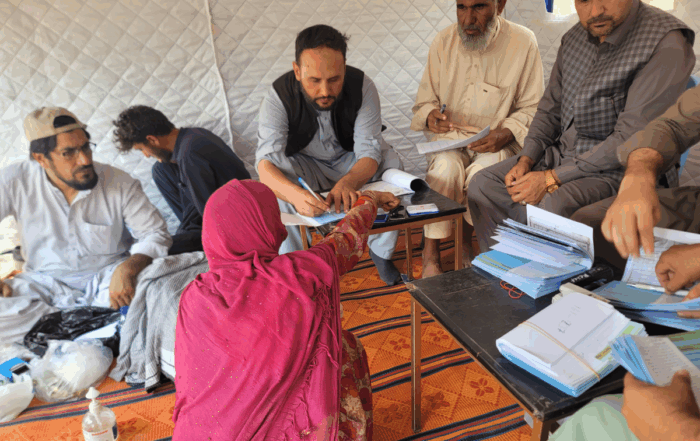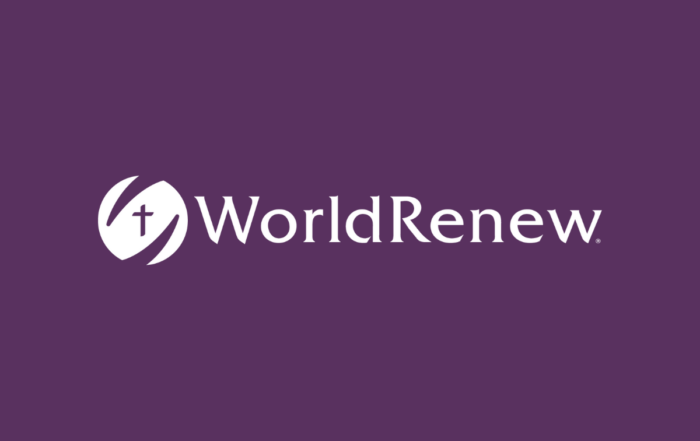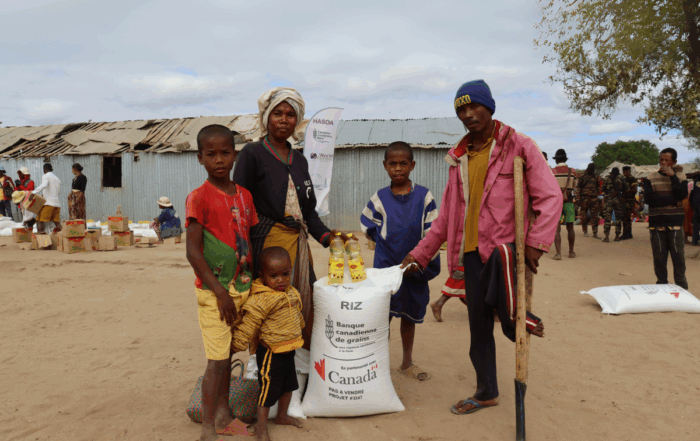i don’t watch the news anymore
Why you aren’t the problem . . . and how to be part of the solution
By Naomi Bula
July 16, 2025

I don’t watch the news anymore
Why you aren’t the problem . . . and how to be part of the solution
BY NAOMI BULA
JULY 16, 2025
Global crisis pop quiz time! How long has civil unrest been a concern in Sudan? Can you identify an effect of gang violence in Haiti? How many people died due to the two earthquakes in Myanmar on March 28, 2025?
If you aren’t sure of any of those, you’re not alone. And I’d argue that you’re also not at fault. As someone working in the humanitarian sector, I often have conversations with folks who admit they avoid the news for their own mental health. There are other reasons, however, why most of us remain oblivious to global issues. I contributed to a paper published last year by Integral Alliance that outlines a few of the contributing factors that minimize so many of the humanitarian crises in our world, from chronic droughts to prolonged conflict zones.
- Geopolitical and Economic Priorities
Aid distribution often favors countries with historical, political or economic ties to donor nations rather than those in greatest need. Factors like colonial legacies, foreign policy interests and economic incentives influence aid allocation. We have a bias toward who we know. - Lack of Media Coverage?
Media are at the mercy of commercial pressures. Prolonged crises in countries like Yemen, South Sudan and Myanmar can also suffer from underreporting due to limited access or information overload. This lack of attention impacts fundraising, political will, and public engagement. - Donor Fatigue and Protracted Crises
Continuous exposure to global suffering leads to desensitization and reduced funding for long-term crises. If you’re the kind of person who chooses to fund international aid, you likely gravitate toward projects with tangible, short-term impacts. Sustaining support for complex, drawn-out emergencies is much more challenging. - Impact of Climate Change
Vulnerable communities, especially in fragile states, are disproportionately affected by climate change, which exacerbates poverty, displacement and food insecurity. - Insufficient Support for Locally-Led Action
Too many active aid projects happen completely at the whim of overseas entities with little sense of sustainability. Local actors are crucial for crisis management that can generate lasting change.
Yes, learning about the crises happening in the world can be overwhelming, and you are up against some mighty forces that can frustrate your engagement with them. Here are a few of the Biblical justice life hacks I’ve found to combat my own apathy.
- Switch up your news sources. Look for news outlets local to a crisis, or find ones that aren’t strictly Canadian, American or British. Dig into the articles available on the websites of your preferred aid organizations.
- Read or watch first-hand accounts. Even when their stories are decades old, people who are willing to share their experiences are paving the way for you to gain understanding of the geopolitical contexts that are home to prolonged crises today.
- Make it a group project. At an event in Alberta a few years ago, I met activist and author Shane Claiborne who told me: “Jesus models community. He sends the disciples out in pairs. It’s hard to sustain compassion when you’re on your own. We’ve got to create ways that we can build a network of friends that are caring together. Part of how we get to where we want to go is by surrounding ourselves with people who are on the same journey. If you want to be more courageous, hang out with courageous people.”
- Back it up with good doctrine. One thing about us Reformed types: We lead our hearts with our heads. You may feel compassion for underreported international crises, but building a strong framework for Biblical justice can build motivation.
- Pray. Take the time to understand just enough about global issues to be able to bring them before the Lord. The consequences of taking what may seem like a small step are greater than we can imagine: God listens, we actively love our global neighbours, and our own hearts are softened.
What would you add to this list? What are your pathways to strengthening your capacity to care about those you’ve never met, even as the world works against you? How do you persist and persevere?
This article was originally published in Christian Courier.
Global crisis pop quiz time! How long has civil unrest been a concern in Sudan? Can you identify an effect of gang violence in Haiti? How many people died due to the two earthquakes in Myanmar on March 28, 2025?
If you aren’t sure of any of those, you’re not alone. And I’d argue that you’re also not at fault. As someone working in the humanitarian sector, I often have conversations with folks who admit they avoid the news for their own mental health. There are other reasons, however, why most of us remain oblivious to global issues. I contributed to a paper published last year by Integral Alliance that outlines a few of the contributing factors that minimize so many of the humanitarian crises in our world, from chronic droughts to prolonged conflict zones.
- Geopolitical and Economic Priorities
Aid distribution often favors countries with historical, political or economic ties to donor nations rather than those in greatest need. Factors like colonial legacies, foreign policy interests and economic incentives influence aid allocation. We have a bias toward who we know. - Lack of Media Coverage?
Media are at the mercy of commercial pressures. Prolonged crises in countries like Yemen, South Sudan and Myanmar can also suffer from underreporting due to limited access or information overload. This lack of attention impacts fundraising, political will, and public engagement. - Donor Fatigue and Protracted Crises
Continuous exposure to global suffering leads to desensitization and reduced funding for long-term crises. If you’re the kind of person who chooses to fund international aid, you likely gravitate toward projects with tangible, short-term impacts. Sustaining support for complex, drawn-out emergencies is much more challenging. - Impact of Climate Change
Vulnerable communities, especially in fragile states, are disproportionately affected by climate change, which exacerbates poverty, displacement and food insecurity. - Insufficient Support for Locally-Led Action
Too many active aid projects happen completely at the whim of overseas entities with little sense of sustainability. Local actors are crucial for crisis management that can generate lasting change.
Yes, learning about the crises happening in the world can be overwhelming, and you are up against some mighty forces that can frustrate your engagement with them. Here are a few of the Biblical justice life hacks I’ve found to combat my own apathy.
- Switch up your news sources. Look for news outlets local to a crisis, or find ones that aren’t strictly Canadian, American or British. Dig into the articles available on the websites of your preferred aid organizations.
- Read or watch first-hand accounts. Even when their stories are decades old, people who are willing to share their experiences are paving the way for you to gain understanding of the geopolitical contexts that are home to prolonged crises today.
- Make it a group project. At an event in Alberta a few years ago, I met activist and author Shane Claiborne who told me: “Jesus models community. He sends the disciples out in pairs. It’s hard to sustain compassion when you’re on your own. We’ve got to create ways that we can build a network of friends that are caring together. Part of how we get to where we want to go is by surrounding ourselves with people who are on the same journey. If you want to be more courageous, hang out with courageous people.”
- Back it up with good doctrine. One thing about us Reformed types: We lead our hearts with our heads. You may feel compassion for underreported international crises, but building a strong framework for Biblical justice can build motivation.
- Pray. Take the time to understand just enough about global issues to be able to bring them before the Lord. The consequences of taking what may seem like a small step are greater than we can imagine: God listens, we actively love our global neighbours, and our own hearts are softened.
What would you add to this list? What are your pathways to strengthening your capacity to care about those you’ve never met, even as the world works against you? How do you persist and persevere?
This article was originally published in Christian Courier.






